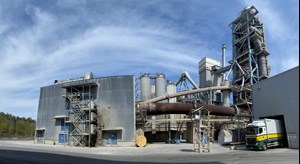News
St1 to use green hydrogen to produce synthetic methanol in its planned pilot plant in Finland
The energy company St1 is planning the first synthetic methanol plant in Finland next to the Finnsementti factory at the Ihalainen industrial site in Lappeenranta. The Ministry of Economic Affairs and Employment has granted a funding of €35.4 MM to St1’s Power-to-Methanol Lappeenranta project, which aims to produce renewable synthetic methanol to replace fossil fuels used in maritime and road transport. St1’s goal in the commercial-scale pilot project is to develop a replicable and scalable synthetic methanol production concept.
The Ministry of Economic Affairs and Employment funding decision is conditional, as it requires approval from the European Commission. The funding is provided from the European Recovery and Resilience Facility.
The project will advance to the investment decision phase once business plan and all the planning and impact assessment processes required for the permits have been completed. If the project advances according to plan, the plant will be operational in 2026.
The plant will produce about 25,000 tpy of synthetic methanol. The employment impact of the construction phase of the project is about 250 full-time man-years and it will generate more than 20 new permanent jobs.
New pioneering, low-carbon Power-to-X technology project
Synthetic methanol is an important future low-carbon fuel. St1 has studied the production of synthetic methanol with the LUT University for years, and it has been shown to be a potential and feasible concept. LUT will continue to be heavily involved in the development cooperation within the project.
The synthetic methanol production plant in Lappeenranta will use the hard-to-abate CO2 emissions from the limestone raw-material at the Finnsementti factory, reducing the emissions of the cement factory considerably. The other raw material needed is green H2 produced in an electrolysis process involving wind power and water. Synthetic methanol is produced in the synthesis of carbon and green H2. Correspondingly, the waste heat generated in the production of synthetic methanol will be used in the district heating network of Lappeenrannan Energia.
The synthetic methanol produced in this project will be distributed directly for use in maritime transport through St1’s own distribution network. It can also be used as a fuel component for road transport to replace fossil components in the current logistics and distribution network.
The pilot project grants privileged access to the developing market
The investment support will allow for the concept to be implemented in Finland for the first time and build competences for extensive scaling and replication while improving our energy self-sufficiency. The St1 Power-to-Methanol Lappeenranta project is an excellent example of the full utilization of sector integration within the energy sector in Finland.
There are plenty of applications aiming at low carbon emissions and the demand for methanol as a replacement for fossil fuels will grow remarkably soon.
“The Nordic market for synthetic fuels will grow considerably in the coming years. The timetable of our pilot project would allow Finland access the first wave of industrial applications and, consequently, the establishment of the synthetic methanol market and solution scaling. The project will also provide the involved parties with important expertise, which will also be used in advancing other Power-to-X projects. We are delighted that the City of Lappeenranta and other local parties are fully invested in this project,” said St1’s Head of Energy Transition Business, Riitta Silvennoinen.


